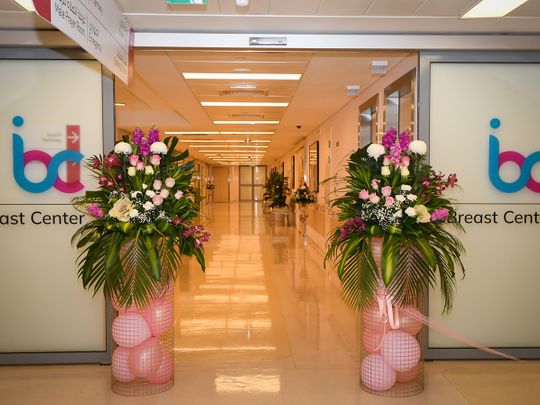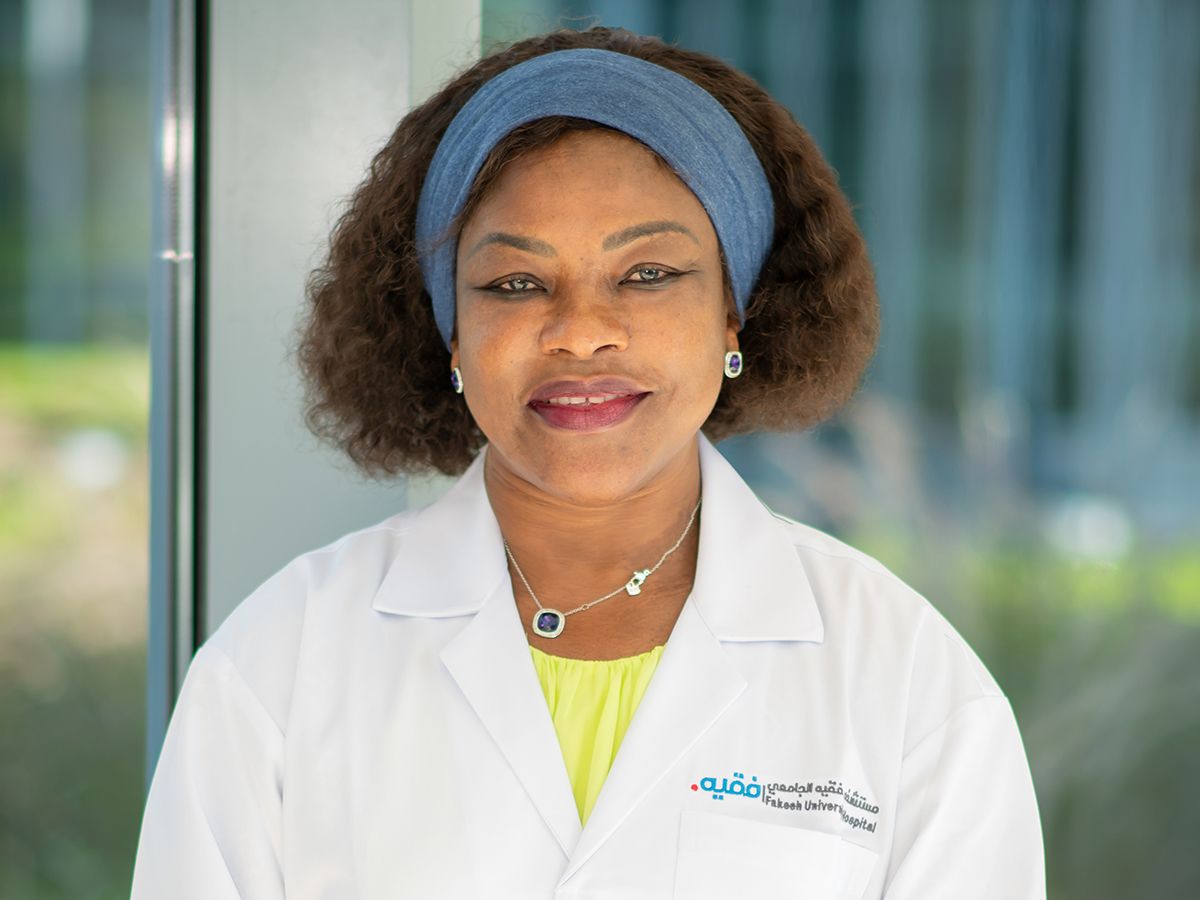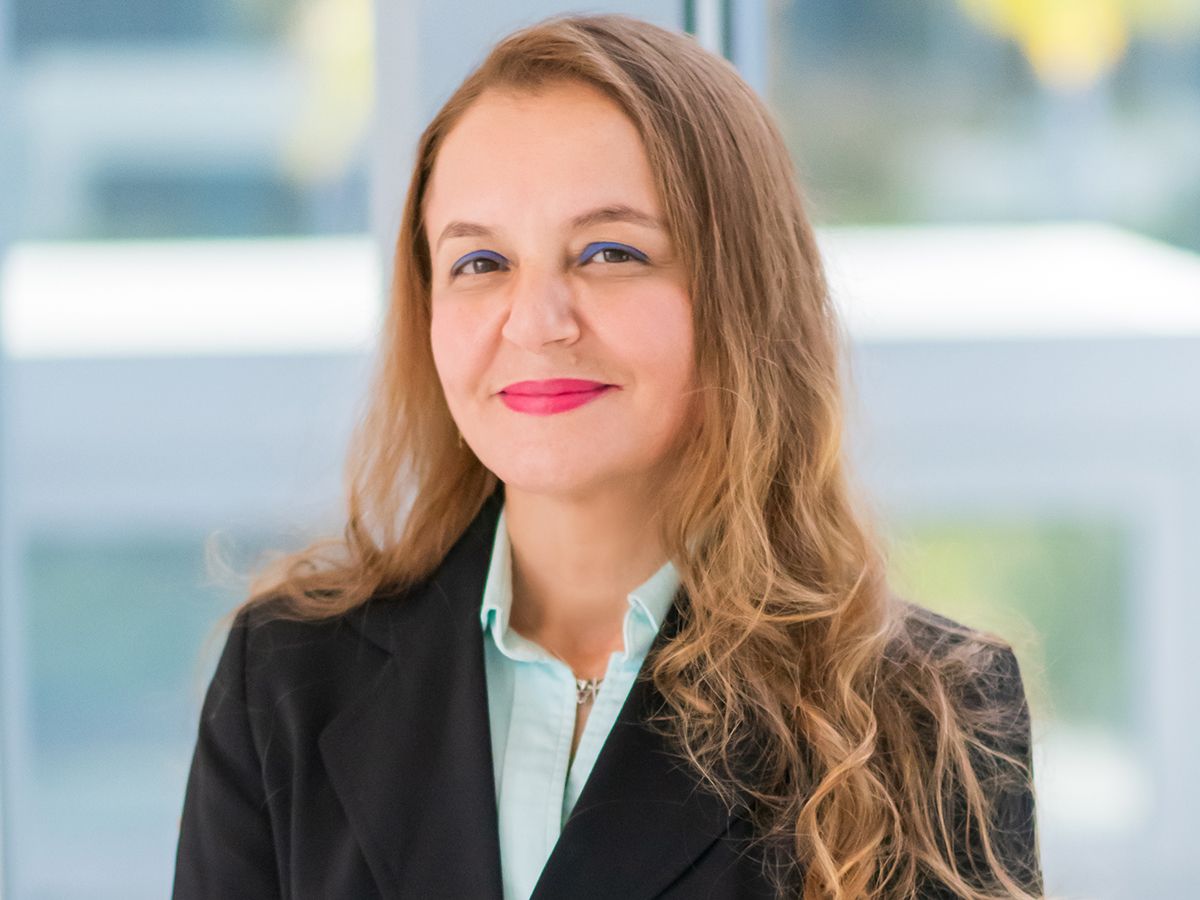
Breast cancer is the most prevalent cancer among women, according to the World Health Organisation. It accounts for nearly 20 per cent of all cancer cases in the UAE and is the second-most significant cause of death among women after cardiovascular conditions.
With the launch of its new Breast Centre, Fakeeh University Hospital aims to bridge the gap in awareness among women, along with providing expert care, early detection and better chances of recovery.
Breast cancer is a condition in which the abnormal rapidly dividing cells of the breast multiply uncontrollably. There are various types of breast cancer. The type of breast cancer is determined by the cells in the breast that develop into cancer. Breast cancer cells typically form an abnormal distortion, calcifications or asymmetry between the breast, which can be seen on X-rays or felt as a lump. It affects almost primarily women, however, men can develop it too.
“It is possible to survive breast cancer and emerge victorious,” says Dr Alache Millicent Bello, Consultant Breast and Oncoplastic Surgeon, Fakeeh University Hospital. “While we cannot prevent the onset of the condition, with awareness, the right treatment and care can be given in time for a healthier life ahead. One of the best ways to nip this disease early on is by understanding the symptoms and doing regular screening.

“Women over 40 years of age should ideally consult their doctor and plan out their screening schedules. While younger women can do regular self-screenings themselves. Women with a family history of breast cancer should also start screenings earlier.”
Symptoms
Some of the most common signs and symptoms of breast cancer are:
● A new lump or thickening in the breast or armpit
● Change in breast size, shape, or appearance
● Dimpling or irritation in breast skin
● A nipple that has recently inverted
● The pigmented patch of skin surrounding the nipple (areola) or breast skin peels, scales, crusts, or flakes
● Reddening or pitting of the skin above your breasts
● Spontaneous nipple discharge (other than breast milk), including blood
Causes
Breast cancer develops when some breast cells grow abnormally. “These cells divide at a faster rate than healthy cells, causing a lump or a mass to develop,” explains Dr Serife Simsek, Specialist Breast Surgeon, Fakeeh University Hospital.

“Cells in your breast may move to lymph nodes or other regions of your body (metastasize) and may cause further issues.”
Cells in the milk-producing ducts are the most common cause of breast cancer (invasive ductal carcinoma). Breast cancer can start in the glandular tissue known as lobules, ducts, (invasive lobular carcinoma), or in other cells or tissues inside the breast.
Hormonal, behavioural, and environmental variables have all been linked as possible contributory factors that may increase the risk of breast cancer, according to researchers. However, it is unclear why certain people’s cells behave in this way. Only 5-10 per cent of breast cancer are due to genetic or inherited breast cancer genes, commonly BRCA1and 2. The greatest risk factor is being female and increasing in age.
Screening
The best way for early diagnosis of breast cancer is regular screening. Breast cancer is usually diagnosed after the symptoms develop, although many women with cancer have no signs or symptoms at all. This is why it is critical to get screened for breast cancer on a regular basis.
Here are some of the screening tests:
1. Mammogram - It is s a type of X-ray that is used to examine the breast. Mammograms are the most effective approach for early detection.
2. Breast Magnetic Resonance Imaging (MRI) - A breast MRI takes images of the breast using magnets and radio waves. Breast MRI is used in combination with mammograms to examine women at high risk for breast cancer and for special circumstances.
3. Breast Self-Awareness - Knowing how your breasts appear and feel can assist you in detecting signs such as lumps, discomfort, or changes in size that may be cause for worry. However, this does not reduce the risk of breast cancer but makes one aware of early changes.
4. Clinical Breast Exam - A clinical breast exam is performed by a doctor or nurse who looks for lumps or other changes with his or her hands. Again, this is not a screening tool but employed when patients present to the breast surgeons.
Risk factors
Breast cancer is caused by a mix of causes. Being a woman and being older are two major variables that impact your risk. The majority of breast cancers can be seen in women over the age of 50.
● Risk factors that cannot be controlled
○ Reproductive history
○ Growing older
○ Genetic mutations
○ Family history of breast or ovarian cancer
○ Previous treatment using radiation therapy
○ Having dense breasts
○ Personal background of breast cancer or some non-cancerous breast diseases
● Risk factors that you can control
○ Being physically inactive
○ After-menopausal obesity or overweight
○ Using hormones
○ Consuming alcoholic beverages
Prevention
For women with an average risk of breast cancer, making lifestyle changes may help lower their risk. Make an effort to:
1. Conduct breast self-exams
Check your breasts regularly. Consult your doctor straight away if you detect any new changes, lumps, or other unusual signs in your breasts. Breast cancer cannot be prevented, but breast awareness can help you with early detection.
2. Consume alcohol in moderation
Breast cancer is more likely to occur if you consume a lot of alcohol. According to current studies, consuming more than 1 to 2 glasses of alcohol per day, including beer, wine, and spirits, increases the risk of breast cancer as well as the likelihood of the disease returning after treatment.
3. Engage in some physical activity
Physical activity can benefit you in maintaining a healthy weight, which aids in the prevention of breast cancer. Most healthy individuals should aim for at least 150 minutes of moderate aerobic exercise per week or 75 minutes of intense aerobic activity per week, as well as strength training at least twice per week.
4. Post-menopausal hormones should be avoided
Long-term use of postmenopausal hormones to prevent chronic illnesses is not recommended. Studies have shown a varied effect on health. Both estrogen-only and estrogen-plus-progestin hormones raise the risk of developing breast cancer. If postmenopausal hormones are used, they should be used for as short a time as possible.
5. Maintain a healthy weight
If you need to lose weight, talk to your doctor about how to do so in a healthy way. Decrease your daily calorie intake, while progressively increasing your physical exercise.
6. Choose a nutritious diet
There is no conclusive evidence that consuming or avoiding certain foods increases the risk of developing breast cancer or returning after treatment. However, eating more fruits and vegetables while consuming fewer animal fats has been related to a variety of health advantages.
7. Breastfeed, if possible
Breastfeeding may be associated with a reduced risk of breast cancer, but does not abolish the risk. Breastfeeding for a total of one year or more (for all children) reduces breast cancer risk. It is also good for the child's health.
Risk management for high-risk women
If your doctor has reviewed your family history and concluded that you have other risk factors for breast cancer, such as precancerous breast disease, you may explore methods to lower your risks, such as optimised screening advice, chemoprevention or preventive surgery.
Also, according to your personal history, consult your doctor on when to start mammograms and other tests. Maintain a healthy lifestyle and food habits to prevent various diseases, including breast cancer.
Timely detection, which is possible through regular screenings, will result in early treatment. Ensure that you stay in touch with your doctor to understand the screening processes and the timelines that will suit your health.
If you or your loved one is at risk of breast cancer due to various factors, Fakeeh University Hospital recommends screening and consultation with its experts at its newly opened Breast Centre.
For information and appointments call 04 414 44 44 or visit www.fuh.care




